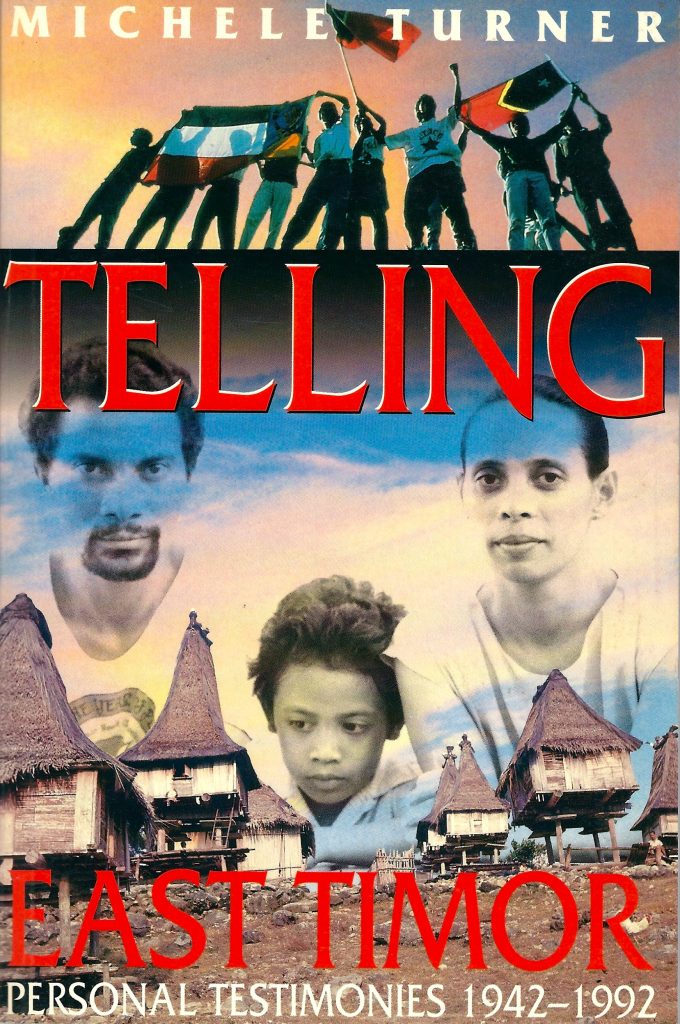Michele Turner has collected personal testimonies by the East Timorese about their recent history of suffering and resistance. Telling East Timor reminds me of Mev’s book of interviews with Brazilians, in that these, too, are voices and visions of the struggle which is one: for East Timorese independence, Indonesian human rights, and U.S.respect for law. There are tales herein that would warrant inclusion in Ivan Karamazov’s list of inhumanities. Part I reviews W.W.II, with the Australians and the Japanese in Timor from 1941 to 1945. The selections are short a few pages at most and speak of the Timorese contribution during the war. In Part II, Turner considers thirty years of peace, from August 1945 to August 1975. In Part III, she considers the Javanese Invasion and occupation from September 1975 to 1992.
Let’s consider, then, that this has been, and carve such stories in our hearts:
Edhina: At the end of three years when the enemy was surrounding us we ate rats and grasshoppers and snakes. Some go and catch them and if you have money or something to exchange you buy it from them. Some people had their gold coins with them. We have those buried under the house usually, very old and precious possessions of the family, but with those they bought meat. We were starving. We never wanted to surrender for three years, but in the end a group of us were surrounded.
Ruby: At the Bishop’s it was very crowded. You had to stand in line for the toilet, and to wash five or six of you went together in one shower. The toilets and showers are in the same block that belonged to the church. There was enough rice but nothing else. The Bishop once got us meat. At 4 p.m. we had dinner and went to bed. We did nothing, too afraid even to sing. Two of our aunts came to see us, but not often, they were frightened to move around in the streets. We heard bombs and guns, we didn’t dare go out for a long time.
Olinda: One of the girls who worked with me told me once how Indonesian soldiers raped her, a lot of them holding her down, one after the other until her body was broken and torn. She was married and they killed her husband in the bush. She was surrounded and gave up. She had two children with her when they raped her. She was taken to a hospital afterwards and she told the doctor there that she didn’t want to live. When she told me about this she was very upset and so I didn’t ask much. She looked sad all the time at work.
Mr. Hong: When they use electricity I don’t feel pain at first, then it’s trembling and burning. After a day I start to feel pain all over my body. But they hit at the same time so I don’t know the cause, electricity or beating. When they beat me they ask always if this person or that person is Fretilin. But then really I don’t know. So they keep beating me. They say I should know and then they beat me. I suppose they really are not sure if I am Fretilin or if I know these people are Fretilin or not. I am saying I don’t know but maybe they think I lie.
Monsignor Martinho da Costa Lopes: For us of the Church it was terrible, there was no one the people could go to for help except us, and we could do so little. Each time I went to the commander and complained; for years I did this. Maybe it helped for a short while, but really nothing, the military treated us with contempt, so after five years I started to speak out. I spoke in the church against the military. I told them that if they wished to kill me they knew where I was, I was ready for death.
–7 March 1997
